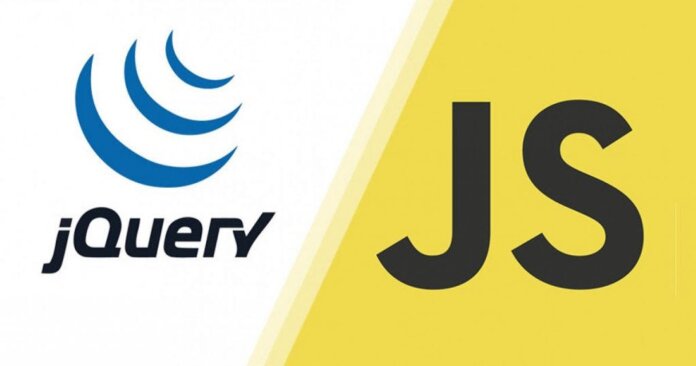The choice you make between the JavaScript and jQuery frameworks could have a significant impact on the outcome of your web development project. Every option has benefits, so you should base your decision on the requirements, level of complexity, and long-term goals of your project. In this blog post, we will take a close look at the conflict between the jQuery and JavaScript frameworks to assist you in making an informed choice.
Comprehending jQuery
jQuery is a well-known JavaScript library with a large feature set, small size, and rapid performance. It makes tasks like event management, animations, and HTML document navigation simpler, which makes DOM manipulation and web page interactions easier. Below is a summary of some of its notable attributes:
Usability: jQuery is renowned for its ease of use. It is understandable to developers of all experience levels due to its simple syntax.
Compatibility: It eliminates a lot of cross-browser inconsistencies by guaranteeing compatibility between various browsers.
DOM Manipulation: jQuery makes it easier to choose elements, modify their properties, and react to user input.
Huge Plugin Ecosystem: jQuery has an extensive plugin ecosystem, which makes adding new features to it simple.
Examining Frameworks for JavaScript
On the other hand, JavaScript frameworks offer a complete foundation for creating web applications, including a variety of tools and libraries to manage various tasks, such as controlling the user interface and processing data. Prominent JavaScript frameworks that exemplify this all-encompassing strategy include React, Angular, Vue.js, and Ember.js.
Here are some reasons to think about utilizing a JavaScript framework:
Components: Frameworks promote the use of reusable parts, making it possible to approach development in a modular and structured manner.
Data Binding: A lot of frameworks have two-way data binding, which updates the user interface (UI) automatically when data changes.
Virtual DOM: To improve performance in intricate applications, certain frameworks use a virtual DOM for effective updates.
Routing: Single-page applications (SPAs) with integrated routing systems have easier navigation.
JavaScript Frameworks vs. jQuery: Which to Use When?
Select jQuery in this case:
Rapid Prototyping: The simplicity of jQuery can save time if you need to quickly create a basic website or prototype.
Compatibility: If you need to support older browsers, jQuery is a great option.
Improving Current Projects: Unless absolutely required, there’s no reason to switch to a framework if you have an ongoing project that uses jQuery.
Select a Framework for JavaScript When:
Complex Applications: The structure and organization of a JavaScript framework can be invaluable for complex, data-driven web applications.
Scalability: Frameworks provide both scalability and maintainability when preparing for long-term growth.
Single-Page Applications: React and Angular are good framework choices if your project is an SPA with dynamic navigation and content.
Team Collaboration: By providing best practices and guidelines, frameworks help teams collaborate more effectively.
Last Words
The selection of a framework in a given scenario is contingent upon the context and is not absolute. Choose the option that best fits the demands of your project from among the available options as each has a unique set of benefits. In some cases, you may even combine the two, using jQuery for simple tasks and a framework to handle more complex elements.
In the end, a variety of factors, including the size of the project, your skill set, and performance goals, will influence your choice. Remember that the world of web development is always changing, so it will be helpful in the long run to be open to picking up new skills and techniques.


